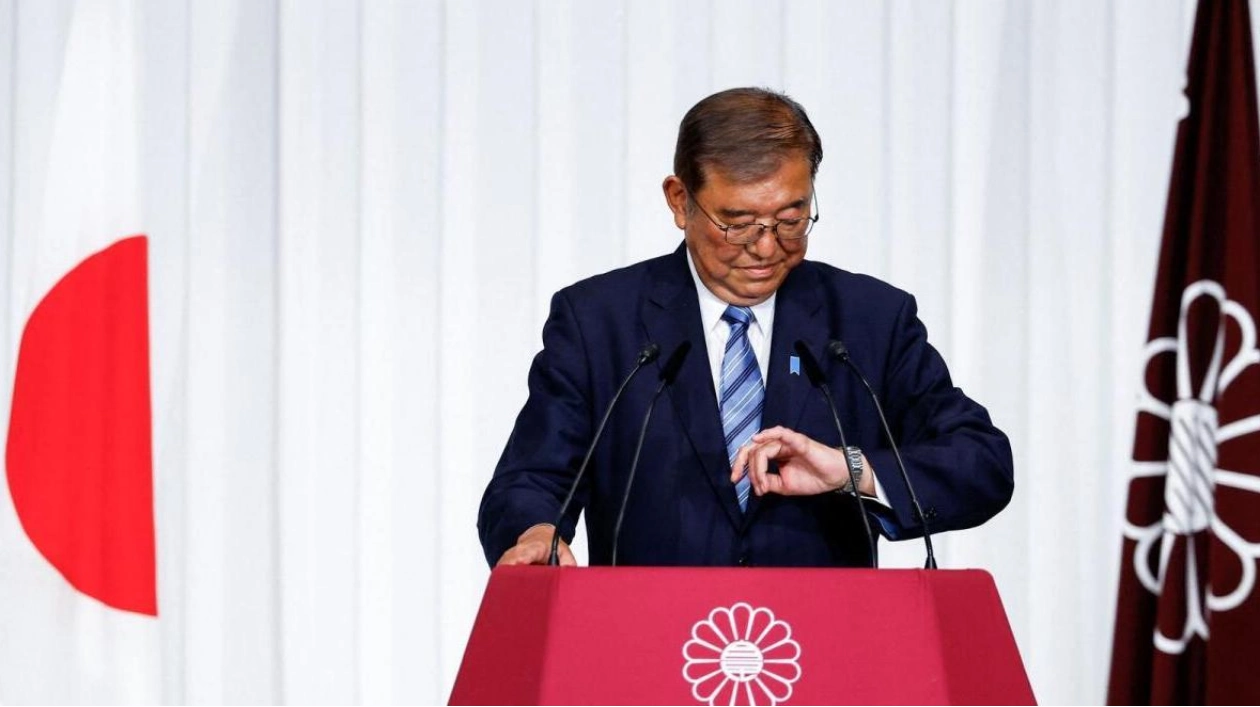Shigeru Ishiba, Japan's Prime Minister and leader of the ruling Liberal Democratic Party, arrived for a press conference at the party's headquarters in Tokyo on Monday. The Japanese Prime Minister is known for his passion for defense and trains, but his recent snap election gamble did not pay off as his party suffered its worst result in 15 years. The election outcome on Sunday dealt a significant blow to the 67-year-old Ishiba, a seasoned party member who is also a fan of 1970s pop idols and military models.
Last month, Ishiba emerged victorious over eight other candidates to lead the conservative LDP, which has governed Japan almost continuously for seven decades, despite frequent leadership changes. He took office on October 1, succeeding Fumio Kishida, who faced discontent due to rising prices, a slush fund scandal, and LDP ties to a Christian movement following the 2022 assassination of former Prime Minister Shinzo Abe. Ishiba's decision to call an election shortly after taking office was aimed at "starting afresh as a fair, just, and sincere party." However, his reform rhetoric failed to sway voters.
According to projections from national broadcaster NHK and other sources, the LDP fell short of a majority for the first time since 2009. Even when combined with the seats won by its long-term coalition partner, Komeito, the LDP is expected to miss the required 233 seats in the lower house—a threshold Ishiba had set as his minimum goal. By Monday afternoon, Ishiba seemed to be fighting for his position, vowing to stay in office to prevent a "political vacuum." He emphasized his commitment to protecting people's lives and Japan in a speech.
Ishiba attributed the election's biggest factor to "people's suspicion, mistrust, and anger" over the slush fund scandal, promising to enact reforms regarding "the issue of money and politics." He had previously failed four times to lead the party, including a 2012 bid against his arch-rival Abe. Ishiba's outspoken criticism of LDP policies under Abe alienated party heavyweights, according to Yu Uchiyama, a politics professor at the University of Tokyo. Just a week into his term, Ishiba called for elections, aiming to create a "new Japan that will drastically change the nature of Japanese society." He pledged to revitalize rural areas and address Japan's declining population with family-support measures like flexible working hours.
In a nod to regional tensions, Ishiba warned that "today's Ukraine could be tomorrow's East Asia," with the regional environment being "the most severe since the end of World War II." He has supported the creation of a regional military alliance akin to NATO to counter China, though he has since cautioned that it would "not happen overnight." Ishiba's support for the Bank of Japan's exit from ultra-loose policies caused a surge in the yen and a drop in stocks after he won the LDP leadership. He later calmed markets by stating that the timing was not right for further interest rate hikes. His approval ratings have declined in recent weeks, partly due to his reversal on issues like allowing married couples to have separate surnames.
Ishiba also missed an opportunity to appear more modern by appointing only two women to his cabinet, down from five under Kishida. Ahead of the election, Rintaro Nishimura at think-tank The Asia Group suggested that "Ishiba's longevity as prime minister is in question." There is a faction within the LDP that could form a critical mass and push for a change in leadership, though not necessarily a change in government.
Source link: https://www.khaleejtimes.com






